Community
Welsh Water investment to support customers and environmental improvements
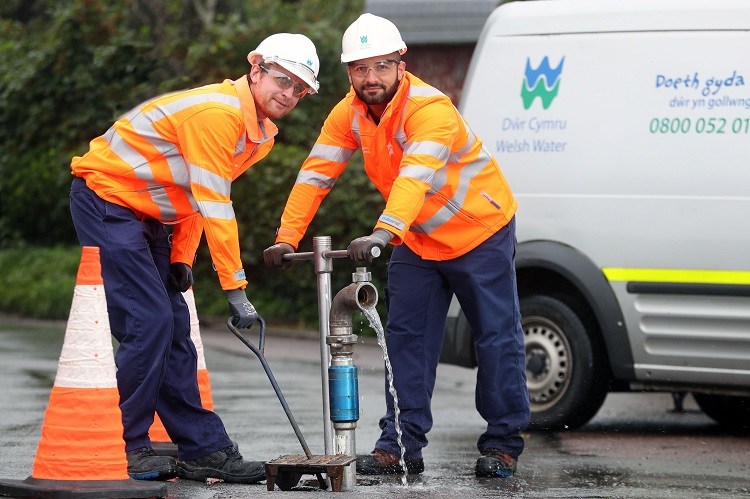
CUSTOMERS and the environment are set to benefit from major initiatives by Welsh Water, made possible by its not-for-profit business model.
As cost-of-living pressure increases and with its focus on reducing any adverse impact on the environment, the company is taking steps to take full advantage of its unique operating model to support its household customers and the environment.
Welsh Water, which already provides financial support to a larger number of customers, proportionate to the company’s size, than any other water company in England and Wales, has confirmed that it will:
maintain its range of support measures to help customers manage their bills such as payment holidays, flexible payment plans, and advice on simple ways to reduce water use
invest £12million to expand the financial support to an extra 50,000 households either through its “social tariffs” scheme or a new community fund
launch a pilot of the community fund in January 2023 to target customers who are struggling with household bills but are ineligible for benefits and, therefore, Welsh Water’s social tariffs.
The role that the company plays in protecting river water quality has come under increased focus over the past year, with Welsh Water already investing heavily to reduce its phosphate contribution to rivers. The company has already committed to investing £833 million to improve its wastewater assets, particularly Combined Storm Overflows (CSOs), on sensitive rivers between 2020 and 2025 and has also announced an additional £100 million investment to help protect river water quality.
This further investment allows the company to accelerate plans to install more phosphate removal plants at wastewater treatment works (£60 million) and to reduce the impact of CSOs – particularly those which are located along Special Areas of Conservation (SAC) rivers (£40 million). This will mean investing in its key assets at sites such as the Menai Strait (£10 million), Brecon
(£6 million), Monmouth (£2 million) Trebanos (£2 million) as well as Llanybydder, Lampeter, Wolfscastle, Corwen, Llanfoist and Letterston (£20 million). It will also enable more nature-based solutions to be developed to help improve river quality. On, for example, the river Wye the company is working with the Wye & Usk Foundation and Hereford Council to support additional phosphorus removal using natural treatment through a low carbon wetland system which will also enhance local biodiversity.
Cllr Liz Harvey, Deputy Leader of Herefordshire Council said: “The close collaborative working with Welsh Water and the Wye and Usk Foundation is slowly getting housebuilding in the county moving again and making a contribution to improving our rivers too.”
This announcement of funding to support vulnerable customers and protect the environment comes as the company reports on its half year results. Despite the wider challenges facing the economy, the company has maintained a strong performance. This has included continuing to invest just over £1 million per day on improvements to its water and wastewater networks.
The company has also confirmed that it is working on a scheme to support its employees through the cost-of-living crisis and has already implemented the increase to the Real Living Wage for all affected employees.
Glas Cymru Chairman, Alastair Lyons, said: “Our non-shareholder business model sets us apart from the other water companies in England & Wales and it is important that we demonstrate how it provides tangible benefit to our customers. I am, therefore, very pleased that not needing to reward shareholders makes it possible for us to announce this additional investment to benefit our customers and the environment. This builds on the millions of pounds our model has already allowed us to invest to help keep bills affordable for customers and deliver essential investment schemes to improve services for customers and mitigate the impact of our operations on the environment”.
Welsh Water Chief Executive, Peter Perry, said: “The current financial crisis is understandably a worrying time and will mean that more customers will find themselves in a situation where they struggle to pay their bills. With the goal of earning the trust of our customers, we know that we have an important role to play here which is why we are going to be supporting even more customers in this time of need. Our advice to customers is to contact us the moment the bill becomes a worry so that we can look how we can provide support to alleviate this concern.
“Equally as important is that we redouble our efforts to protect the environment, particularly river water quality. With expectations changing, more needs to be done, especially to reduce the impact of CSOs. Removing them from our sewerage system altogether is not an option but what is in our control is the ability to target investment at those CSOs which have the biggest impact so that we can improve their performance and river water quality. The extra £100 million will enable us to bring forward investment schemes to help achieve this and will build on the £833 million we are already investing in our wastewater network through to 2025.”
Community
Senedd unanimously backs sign language bill

PLANS to make Wales the best place in the UK for British Sign Language (BSL) users moved a significant step closer to becoming law with the Senedd’s unanimous support.
If ultimately passed, the BSL bill – introduced by the Conservatives’ Mark Isherwood – would end Wales’ status as the only UK nation without specific sign language protections.
Leading a debate on Wednesday December 17, Mr Isherwood said the Senedd supporting the bill’s general principles was a “huge step ahead” for the “vital” legislation.
Mr Isherwood, a disability rights campaigner for decades, explained his backbench bill would introduce legal requirements to promote and facilitate the use of BSL in Wales.
He said the bill, if passed, would be the most progressive piece of BSL legislation anywhere in the UK, recognising BSL is a language in its own right, not a communication support need.
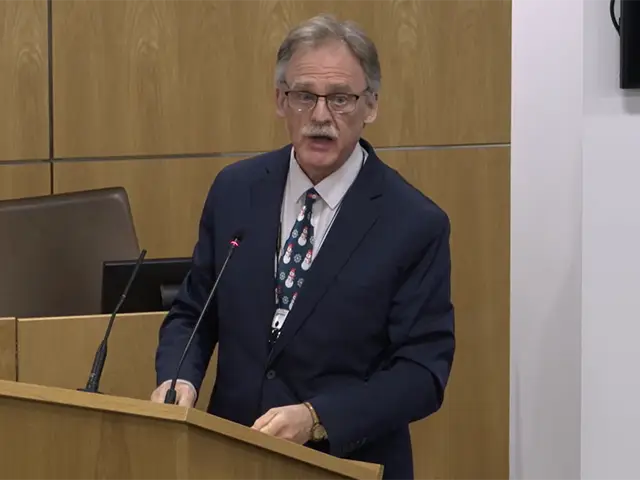
He highlighted that the bill would establish a BSL adviser role, the first statutory post of its kind in the UK, describing its importance as something that “cannot be overstated”.
Mr Isherwood, who chairs cross-party groups on disability and deaf issues, told the Senedd: “This isn’t just my bill. This is the bill of the BSL community. Let’s make this happen together and be proud of it together on behalf of deaf people across Wales.”
Jenny Rathbone, the Labour chair of the Senedd’s equality committee, was convinced of the “overdue” need for legislation to give more standing to British Sign Language.
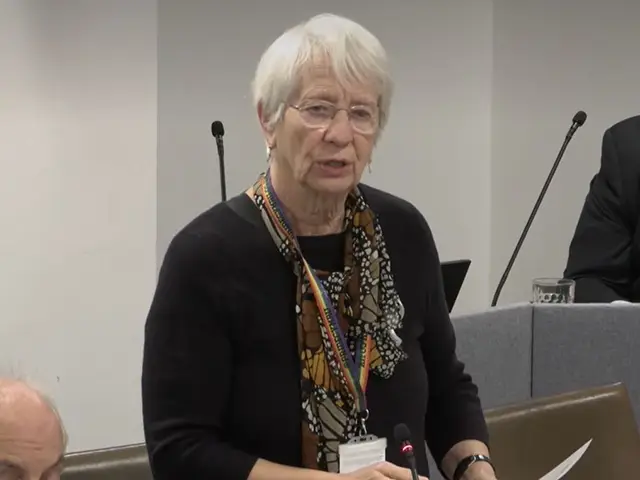
Ms Rathbone said the committee heard the biggest barrier “by some margin” was the availability of interpreters and the sustainability of the workforce.
She quoted a signer who told the committee: “The bill would make us feel respected and valued. But without proper funding, planning and deaf-led leadership, it won’t go far enough.”
Sioned Williams, Plaid Cymru’s shadow social justice secretary, told Senedd members: “Language is a part of our identity, our culture and our personal dignity.
“When someone cannot use their language, they are excluded from education, health care, employment and public life – and that is not acceptable in today’s Wales.”
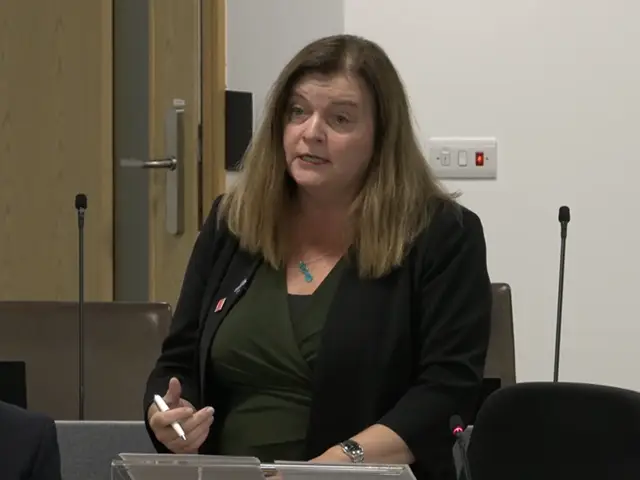
Ms Williams warned that if the legislation fails to deliver real change, the deaf community would be left “angry, disappointed and very, very disheartened”.
She expressed concern that the bill does not legally require the BSL adviser to be a deaf person, arguing it is “not appropriate, possible or efficient” for non-signers to lead the way.
Mr Isherwood defended the decision not to require that the adviser must be deaf, warning a successful legal challenge to a single such provision could cause the entire bill to fail.
Welsh Liberal Democrat leader Jane Dodds warned of an immediate workforce crisis, with only 54 registered sign language interpreters in Wales as of July.
With many now approaching the end of their working lives, she said: “We cannot – we must not – allow this bill to fail because we didn’t have the foresight to address this crisis now.”
Support for the bill stretched across the political spectrum, with Reform UK’s Laura Anne Jones similarly welcoming the “long-overdue” and “vital” legislation.
Jane Hutt, Wales’ social justice secretary, confirmed the Welsh Government’s financial backing, committing £214,300 for the bill’s first year of implementation in 2026/27.
If it clears the final hurdles, Mr Isherwood’s proposal will be the first backbench bill to enter the statute book in about a decade following the Nurse Staffing Levels (Wales) Act 2016.
Community
‘Nowhere I can play’: Disabled children excluded from Welsh parks
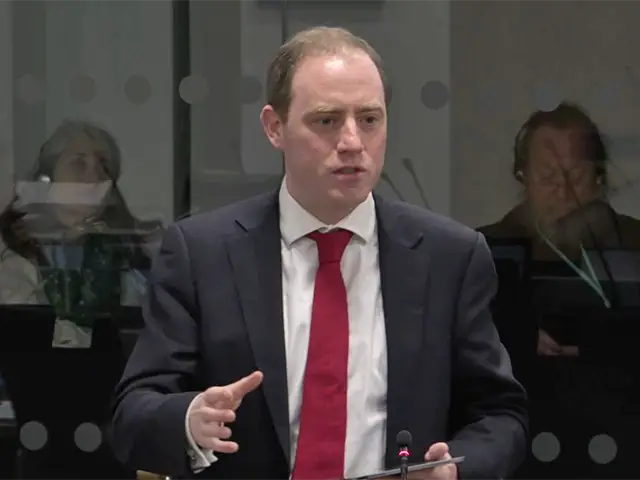
NEARLY four in ten disabled children in Wales “never or hardly ever” play outside due to a “heartbreaking” lack of accessible parks, politicians have warned.
Rhys ab Owen, an independent, described the situation as “disgraceful” as he cited a Play Wales report showing 37% of disabled children are effectively shut out of playgrounds.
Leading a debate in the Senedd on Wednesday December 17, he read the testimony of a ten-year-old boy from Blaenau Gwent who said: “Nowhere disabled friendly – parks haven’t got disabled friendly equipment, so I can’t play.”
Mr ab Owen warned: “There shouldn’t be any discrimination… disabled children do face much greater problems in terms of park maintenance, and with accessibility and inclusion.”
He shared the experience of a 13-year-old girl from Newport who told researchers: “There’s nowhere I can play or hang out safely by myself as I use a frame to help me walk.”
The former barrister warned budget cuts were leading to a managed decline in standards, quoting a 13-year-old from Caerphilly who said: “Due to anti-social behaviour our equipment gets broken, burnt and vandalised and is then not replaced.”
The Conservatives’ Natasha Asghar was stunned by the scale of the crisis and revealed that only 11% of playgrounds in Wales are rated “green”, meaning they are fully accessible. By contrast, almost half are rated “red” for poor accessibility.
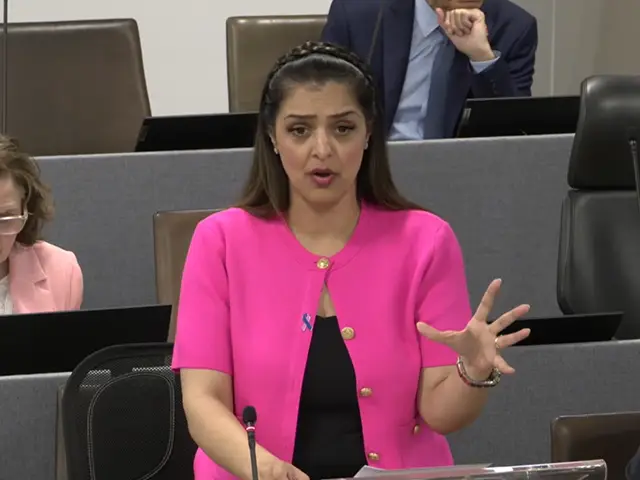
Listing the barriers families face, Ms Asghar highlighted that 30% of sites lack accessible paths and nearly one in five have gates too narrow for wheelchairs. “Those are just two of the barriers preventing disabled children from accessing play,” she said.
Jane Dodds, the leader of the Liberal Democrats in Wales, argued the shocking statistics should be a wake-up call for Senedd politicians.
“To hear that 37% of disabled children in Wales say they never or hardly ever play outside should be a figure to stop us all in our tracks,” she said.
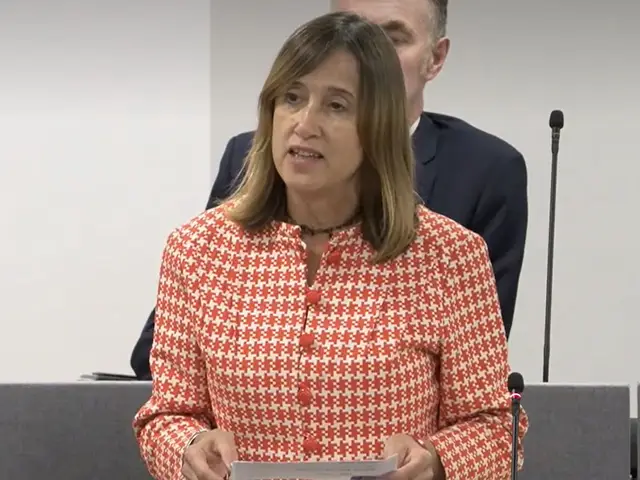
Meanwhile, Mike Hedges pointed out that Wales became the first country in the world to put a duty on councils to secure “sufficient play opportunities” for children in 2010.
And Julie Morgan, a fellow Labour backbencher, celebrated Cardiff becoming the UK’s first Unicef-accredited child-friendly city in 2023.
Dawn Bowden, the minister for children, pointed to £5m to improve playgrounds this year but she too was “disappointed” by play satisfaction figures falling from 84% to 71% since 2019.

She said the Welsh Government has provided a “toolkit” to Wales’ 22 councils, “ensuring a holistic outcome-focused approach” to inclusive and accessible play.
The cross-party motion, which called for play to be protected from cuts – as well as improved access for disabled children – was agreed unanimously but does not bind ministers.
Climate
Pembroke tidal flood defence work to continue to January

SIGNIFICANT issues with a part of Pembroke’s tidal barrage are not expected to be fully fixed before late January, councillors heard.
Pembroke councillors Aaron Carey and Jonathan Grimes submitted an urgent question heard at the December meeting of Pembrokeshire County Council, which said: “In light of the repeated flooding events across the county – including the recent overflow at Castle Pond and the acknowledgement by your own Coastal, Rivers & Drainage Team that the barrage tipping gate remains inoperable until mid-January can you explain what assessment has been made of the adequacy of our tidal outfall infrastructure in the face of current and projected future storm surges and sea-level rise?
“If no such assessment has yet been undertaken, will you commit now to commissioning an immediate structural and risk-capacity audit, with a report to full council within three months, and with proposals for funding any remedial works required — to avoid recurring damage and disruption to residents, highways, and public amenities?”
Responding to the urgent question, Cabinet Member for Residents Services Cllr Rhys Sinnett said a significant assessment of the Pembroke Tidal Barrage had already been undertaken over the past two years, with regular inspections.
He said “a comprehensive package of works” began in September which were due to be completed before Christmas but said there had been “significant issues” with the tipping gate hydraulic ram, with a significant overhaul now taking place, with reinstatement expected by late January.
He told members additional mitigation measures were now in place and, once works are completed, enhanced works will provide improved resilience and “long-term reliability,” with further reports due to come to Cabinet.
Cllr Carey and Cllr Grimes had also submitted a notice of motion saying: “That this council notes with concern the repeated and increasingly severe flooding experienced in our coastal, estuarial and river-fringe communities over recent weeks — in particular the flooding events affecting the Commons/Castle Pond area.
“That the council further notes that, according to correspondence from the Coastal, Rivers & Drainage Team Manager, the tipping gate at the barrage remains out of operation until mid-January due to mechanical issues; meanwhile high tide, heavy rain, wind-driven tidal surges and overspill at the sluice have combined to overwhelm the drainage/outfall infrastructure.
“That we recognise the current maintenance schedule (delayed ‘til after the summer season) and the justification given — but further that such planning failed to foresee the likelihood of severe winter storm and surge events, which climate change makes more frequent and more intense.
“That this council therefore calls on the Cabinet to commission an urgent review of:
- The adequacy of the current drainage/outfall and tidal-sluice infrastructure (barrage tipping gate, sluice/sluice-valve, flap valve, outfall capacity) for current and projected climate/tide conditions.
- The maintenance scheduling policy for coastal and estuarial flood-risk assets, with a view to ensuring critical maintenance is completed before winter high-tide / storm-surge season, rather than — as at present — being delayed until after summer for ‘recreational / biodiversity’ reasons.
“That, pending the outcome of the review, the council should allocate appropriate emergency capital funding to remediate the barrages / sluices / outfalls at risk of failure or blockage — to safeguard residents, properties, highways and public amenities from further flooding.
“That, further, this council resolves to publish a public flood-resilience plan for the county, identifying all coastal and river-fringe ‘hotspots,’ maintenance schedules, responsible teams, and a transparent timeline for upgrades or remedial works — so residents have clarity and confidence in flood prevention measures.”
The notice of motion itself will be considered by the council’s Cabinet at a later date.
-

 Crime23 hours ago
Crime23 hours agoMilford Haven man jailed after drunken attack on partner and police officers
-

 News4 days ago
News4 days agoDyfed-Powys Police launch major investigation after triple fatal crash
-

 Crime21 hours ago
Crime21 hours agoTeenager charged following rape allegation at Saundersfoot nightclub
-

 Crime3 days ago
Crime3 days agoMan sent to Crown Court over historic indecent assault allegations
-

 Crime2 days ago
Crime2 days agoMan charged with months of coercive control and assaults
-

 Crime5 days ago
Crime5 days agoMan spared jail after baseball bat incident in Milford Haven
-

 Crime3 days ago
Crime3 days agoMilford Haven man admits multiple offences after A477 incident
-

 Crime2 days ago
Crime2 days agoWoman ‘terrified in own home’ after ex breaches court order






















